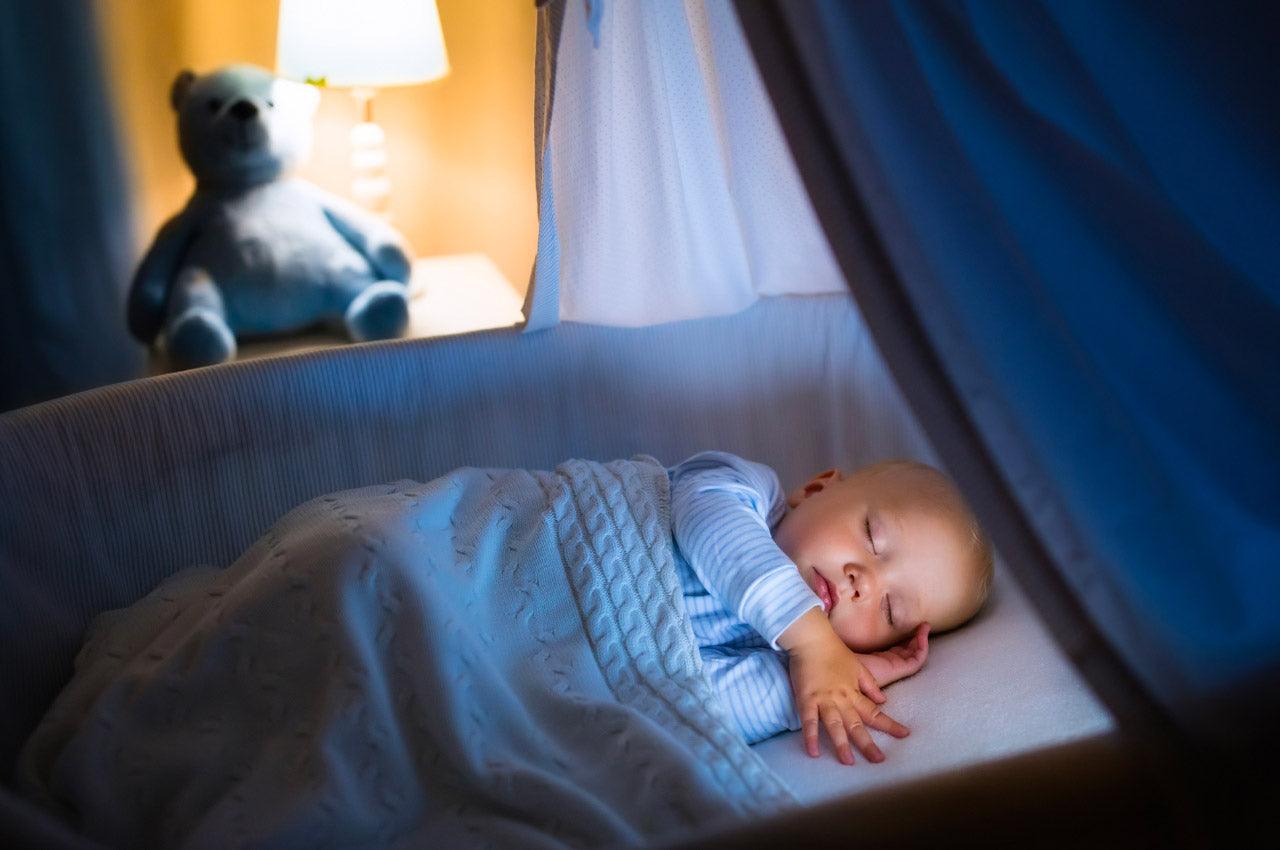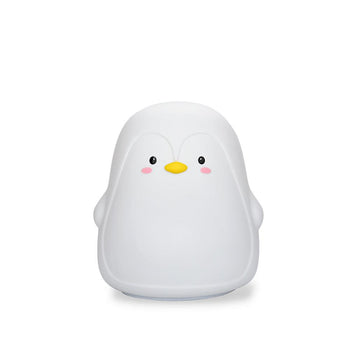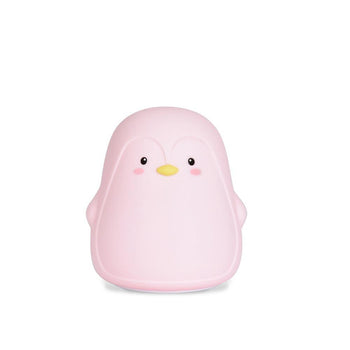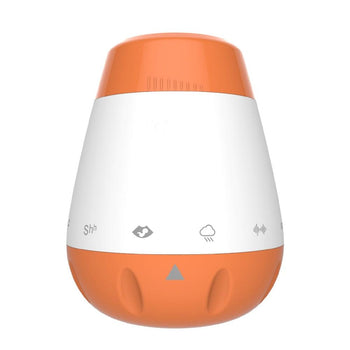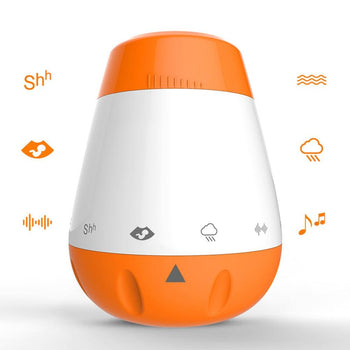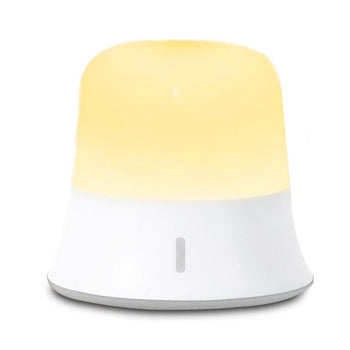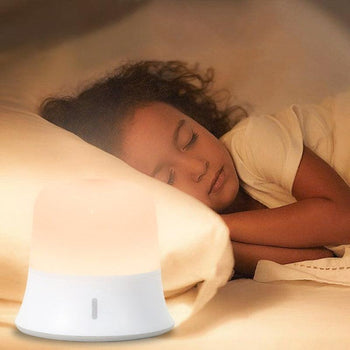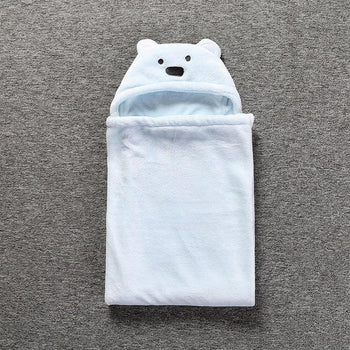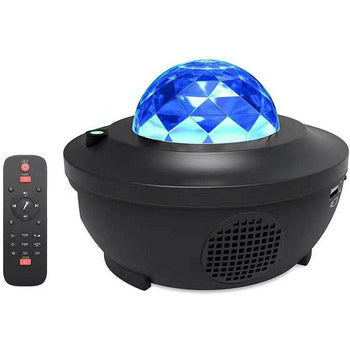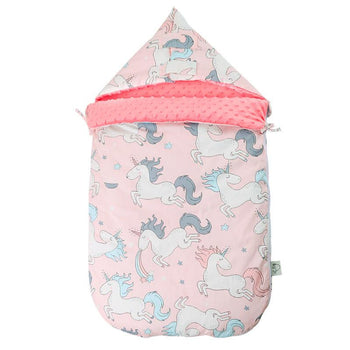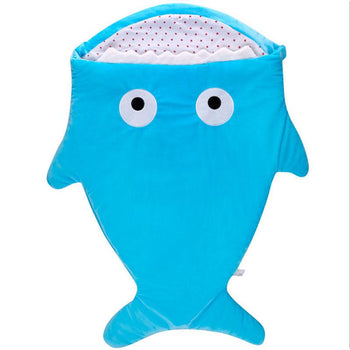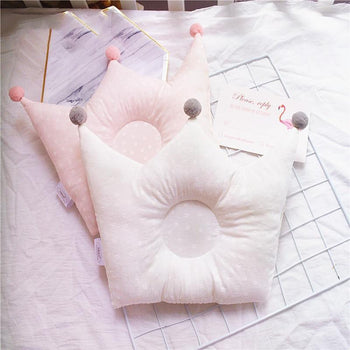Do you remember all the advice you received to get your baby through the night ? (Of course some of you won't need to think very far back, I may be describing the stage you are in right now)
Most of them centered on the idea of the "sleeping baby". But you know what ? It is simply false .
Babies are like adults. They need sleep to grow and develop, and they are not able to go long periods without sleep. So when you're a new parent, advice from well-meaning friends and family members on how your baby should sleep can be infuriating!
If you're one of the lucky few who's managed to fix your baby's nighttime waking or napping issues, you know that not all the advice you heard was true and helpful. In fact, some of that advice was just plain wrong when it came to nighttime sleep . But don't worry, you are not alone. Most parents had to research infant sleep before they could get their child to sleep through the night. With a better understanding of infant sleep, you'll be able to more easily assess and rule out advice that isn't right for your family.
In this article, we're going to look at 5 nighttime baby sleep myths that parents hear all too often, including #5, which is one of my favorite myths because it's so wrong!
Before moving on to our list, it's important to define our terms. The expression "to do all her nights" is actually a little misleading. Many of us (including pediatricians, authors of baby sleep books, and other baby sleep experts) use the phrase "do all his nights." The term " to do all his nights " is a little badly chosen. It is actually 8 to 10 consecutive hours of sleep without waking up. And we can consider that many babies "make their night" when they manage to spend 5 consecutive hours without waking up.
As parents, we've found that most of us need more than 5 hours of sleep to be truly operational during the day. When parents ask us about their baby's sleep , what they want is 8 hours (or more) of uninterrupted sleep, not 5, although that's still great. So, for the purposes of this article, we'll use the phrase "sleep every night" to refer to 8 hours or more of uninterrupted sleep.
Okay, now let's get to the ideas!
1/ All babies can sleep through the night at the age of 4 months
Do all babies sleep through the night at 4 months? No, not at all ! Pediatricians still tell parents that sleeping in before 16 weeks is the norm, but this is no longer supported by research. Sure, some babies are ready to sleep 8/10/12 hours straight by 4 months of age (some even earlier, at 8 or 10 weeks) , but that's certainly not the norm for all the babies. In reality, it's normal for a baby to be fed at night until around 12 months (although we generally recommend trying to wean them at least at 8 or 9 months, as many babies are ready to do their babies by then). nights without being fed).
There is no single answer to the question of when babies start sleeping. Every baby is unique and many factors play a role in whether a baby starts sleeping through the night, such as medical history, developmental delays, diet, family situation and temperament. The average age a baby starts sleeping is around 7 months , but there are babies who start sleeping at 4 months and others who don't start sleeping until they reach the age of 10 months. So there is no single answer that suits all babies.
As a result of this article, parents will not feel like their baby is late and wonder what they are doing wrong if the child does not sleep well at 4 months.
2/ You should keep your baby awake during the day, so he can sleep through the night
No, no and no.
Dear new parents, if you hear this phrase from a friend or family member, politely nod your head, say "thank you," then go home and do the exact opposite. Because while it seems logical to think that keeping a baby awake for long periods of time during the day would help him sleep better at night ("That way he'll be really tired by bedtime!") , but it doesn't work. Thus. In fact, chances are her nighttime sleep is even worse !
Babies naturally want to sleep for long periods of time and usually do so throughout the night. However, many babies don't sleep through the night because they are too tired. Indeed, if they stay awake for too long, they gradually become more and more irritable, until they start moaning, screaming, thrashing and it is impossible to calm them down and fall asleep
In fact, well-rested babies tend to fall asleep more easily and stay asleep longer than overtired babies.
Babies usually start sleeping through the night between 6 and 12 months of age. If your baby still wakes up at night, it's probably because he's taking too many naps during the day and not getting enough sleep at night. You can try shifting some of your baby's sleep to nighttime by waking him up after his long daytime naps. But don't completely cut out naps or keep your baby awake for hours , because that's when things get out of hand.
3/ Your baby is not sleeping through the night yet? It's probably because you're breastfeeding her.
the "useful tip" that makes breastfeeding moms want to tear their hair out! This misconception still persists today despite the progress we've made over the past two decades in understanding the benefits of breastfeeding .
Many new mothers are told that their baby is not sleeping through the night because they are breastfeeding. It's true that breastfed babies need to eat a bit more often than formula-fed babies, because breastmilk is digested quite quickly. However, this does not mean that all breastfed babies will have trouble sleeping at night. In fact, breastfeeding has many benefits that go beyond the simple nutritional value of milk. Breastfeeding provides important antibodies that help protect newborns against disease, and it also helps create a strong emotional bond between mother and baby. If your baby is still having trouble sleeping through the night, don't worry: it's probably not because you're breastfeeding!
Many parents believe that formula-fed babies sleep better than breast-fed babies, but that's not always the case. Many formula-fed babies don't get full nights or reasonable naps. Breastfed babies can learn to fall asleep on their own and sleep well at night, just like formula-fed babies.
4/ If you start giving solid foods to your baby, he will start to sleep through the night.
There is a lot of misinformation about nighttime sleep in babies. For example, the sentence "If you start giving your baby solid foods , he will start to sleep through the night". This phrase was considered medical fact many years ago, but today medical professionals know that it is absolutely false.
There is no real connection between giving a baby solid food and making him sleep through the night. The new AAP recommendations make it clear that parents should not offer solid foods to babies under 4 months of age.
A lot of recent medical research indicates that giving a baby solid food too soon is actually detrimental to their health.
Articles that should interest you:
- What you need to know before you start giving your baby solid foods
- Introducing baby food after milk
5/ Your baby still doesn't sleep through the night?? MY baby started sleeping at the age of 4 minutes!
Some parents make exaggerated claims about when their baby started sleeping. While some of these statements may be true, this is not always the case. The definition of "sleepovers" can vary from parent to parent. Parents may also lie about their baby's sleeping habits. A study has shown that some parents do indeed lie about it.
According to a 2012 study, a third of parents lie about their baby's sleep in order to appear to be better, more perfect parents. What's more, a fifth of parents who lie claim their babies and toddlers sleep through the night when they don't sleep at all.
Most parents aren't lucky enough to have a sleepy baby at an early age. While some babies start sleeping at 8 weeks, this is not always the case. In most cases, babies gradually start sleeping through the night as they get older. There is no fixed age at which a baby starts sleeping, and every baby is different. Some babies may take a few months, while others may take a year or more. There is no right or wrong answer, as each family's situation is different.
So the next time someone tells you that their baby slept through the night right from birth, remember that there's a chance it's true. If so, good for her! But there's also a chance that his version of "going all night" is different from yours. In fact, chances are she's twisting the truth a bit.
We hope this article has cleared up some misinformation about babies and sleep . Every baby is different, and there's no one size fits all when it comes to getting your baby through the night. As a parent, you need to trust your intuition and do what you think is best for your child.
As parents, it's up to you when your baby's sleeping habits become a problem. Don't let others decide what is good or right for your child. You are in the best position to know! If you feel like your baby's sleeping habits are becoming a problem, it's time to act.
If you have any questions or concerns, don't hesitate to talk to your pediatrician.
Feel free to also share your experiences with us in the comments.
To help baby fall asleep, white noise is the perfect tool : Click here to learn more about white noise.
"Reader's special" offer
Get 30% off the entire collection
>>> Sleep <<<
Take advantage of this special offer with the code
DODO30
Do you want your baby to sleep through the night?
In this free guide , you'll discover 5 things you absolutely need to know.
With a unique approach and practical tools for success, this guide will help you and your baby sleep better through the night.


